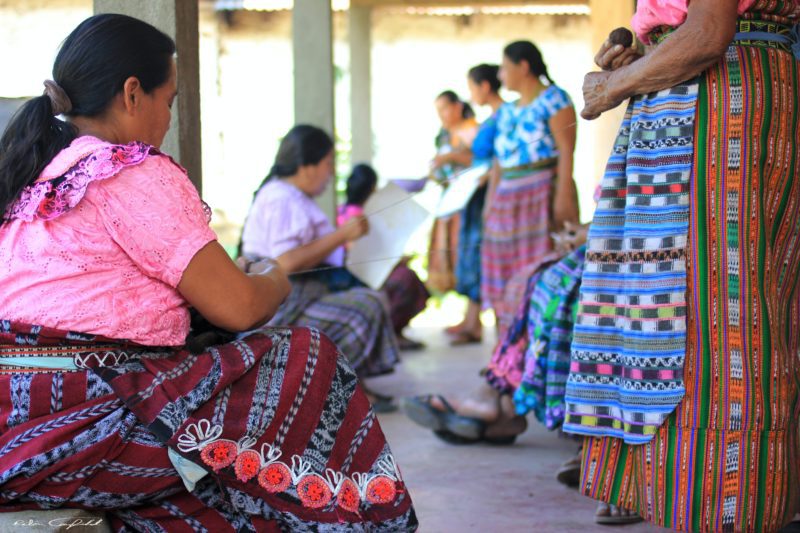Pursuing Partnership Part 5: A Leadership Profile: Jennifer Hoines


http://www.rebeccahopkins.org
This article is part of the series Pursuing Partnership: Men and Women in Ministry.
Part 5: A Leadership Profile: Jennifer Hoines
Some of Jennifer Hoines’ patients are a several-hour commute away on Guatemalan mountain roads. She sometimes makes the sacrificial journey into remote, isolated Guatemala, but many times the patients’ families take the time off work, hike through the mountains, then pay for a ride in a pickup truck so a child can learn how to walk.
“A lot of people believe that disability is a curse from God, a punishment for sin and/or the fault of the mother,” Hoines said of culture in Guatemala, where she works. “So, for families with disabilities, there’s a lot of shame. They keep children with disabilities hidden. I felt like if they came, that was a sacrifice.”
Hoines is the executive director and founder of Therapy Clinics International, an organization that trains local rehabilitation promoters to do basic physical therapy and rehabilitation services for some of the world’s most remote people like Guatemala, with some additional training opportunities in Uganda and Mozambique.
“We’ll help them, but we’re trying to be really clear up front, we are trainers,” she said, with a desire to also “change people’s hearts and perspectives” toward the Gospel and disability.
Jennifer Hoines didn’t set out on her professional career to start a nonprofit organization. And originally planning to be a teacher like her dad, she certainly didn’t intend to be a physical therapist until she was challenged to follow her passions.
“I like sports,” she said, describing her thought process of choosing a career. “I like helping people. I’ve been hurt. I’ve been to PT. I’m going to become a physical therapist.”
She became a Christian during PT school, and by the time she graduated in 1999, jobs were difficult to find in the health care system. But she found a full-time PT position, then eventually switched to part-time to have time to serve as an intern at her church, attend Bible school and then work at the church in youth ministry, organizing missions trips and helping in whatever way she could.
“So, I was thinking this was it,” she said. “But several years into it, I was sitting in the office to the church and I’m like, there’s something else. This has all been great, and I’ve learned lots of good things and lots of ministry skills and tools. But God’s said, ‘Remember when you went to Urbana and you saw pictures of kids in Africa and you said, I’ll use my physical therapy skills on the mission field?’”
She found a couple of organizations that serve medically overseas, but couldn’t find a good fit that matched her physical therapy skills with her desire to serve remote communities. She remembered meeting an American missionary named Sharon Harvey on a missions trip there two years earlier who had a big vision for providing physical therapy training. Hoines emailed her. Within four hours, Sharon had emailed her back, told her she’d just gotten a grant to fund training, and invited Hoines to come join her. Hoines took her up on the offer, and they started, together, a program that partners with local rehabilitation promoters and families to provide ongoing care to children and adults.
“At that moment, I thought, I could go be the physical therapist someplace and see a limited number of people and that would be all fine,” Hoines said. “Or I could go train people in the community who understand the language, who understand the culture and that’s when God put it on my heart.”
The Guatemalan ministry Association Equipping the Saints International staff that TCI has helped train do more than just heal patients, Hoines said.
“They have developed such strong relationships with these families and these kids,” she said.
Hoines earned a doctorate in physical therapy in 2013. Despite her skill level, the mountains of Guatemala aren’t the only ones in Hoines’ work. With a board to report to, strategic planning to enact and communications to keep up with, the leading of her organization can, at times, feel like an uphill journey with its own elements of isolation.
“Women in ministry leadership may need a place to wrestle theologically with what they believe about female ministry leadership, but also a place to learn more about themselves and grow in their understanding of God,” said Wendy Wilson, president of Women’s Development Track, a Missio Nexus partner that trains and develops women in ministry and leadership.
“My hope is we’re launching women forward into a sense of confidence and internal permission – the lack of both which often holds them back from saying YES to God,” Wilson said at the conclusion of her most recent conference, in which Hoines participated.
“The mentoring I’ve received through WDT has helped me develop skills that I need to be the leader God has made me to be,” Hoines said. “And it’s given me a community outside of people I work with, connections and friendships.”
Both her Guatemalan staff and the WDT sessions—which emphasize listener-empowered facilitative learning—have also taught her how to be a good teacher, after all.
“I’ve gone from being a teacher who tells them what to do, to how can I ask questions to lead them to discovery first,” she said.
Question for Reflection:
How might we discover, recruit, and engage more women like Jennifer to contribute their vision, abilities, and capacity to accomplishing our mission?
This article is submitted by Wendy Wilson of Missio Nexus and of Women’s Development Track. Women’s Development Track is a Missio Nexus member. Member organizations can provide content to the Missio Nexus website. See how by clicking here.




Responses